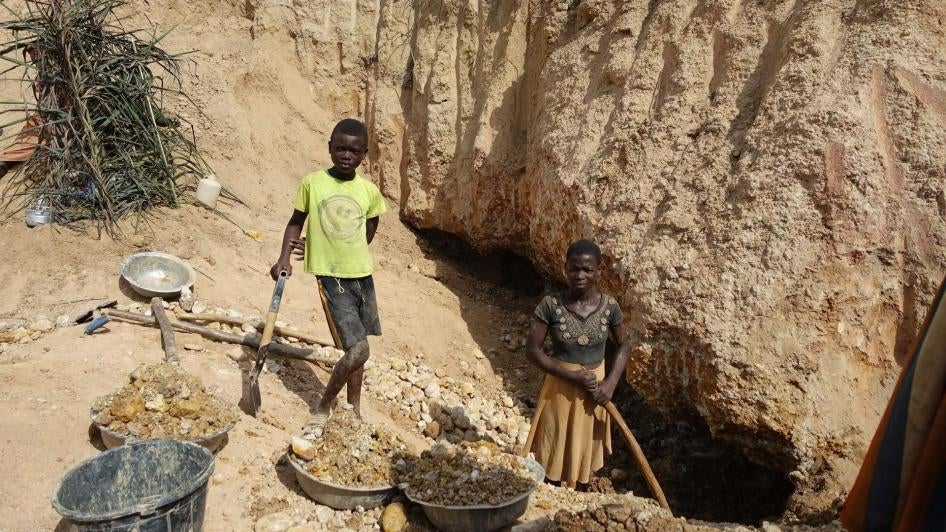Many products these days come with the promise that workers and communities all along their supply line are protected from abuse under a particular standard or code of conduct. Since the United Nations adopted the Guiding Principles for Business and Human Rights a decade ago, a plethora of such certification systems have emerged, including for mining and connected industries ranging from cars to jewelry and electronics.
For mining and mineral sourcing alone, companies can pick from at least 17 standards— some apply to all minerals, and others to certain ones. The standards seek to promote respect for human rights or the environment, and companies carrying the label are checked periodically for their performance under the standard by an audit company.
But some of these systems aren’t worth as much to consumers or workers in the supply chain as one might hope. A certification standard is voluntary and usually owned and managed by a separate certification body. Many entail only superficial human rights inspections and lack transparency because decision-making bodies for these systems are often dominated by industry representatives.
The standards are often broad and vague. Compliance is not always checked rigorously. For example, audits of companies in the gold supply chain often are done by someone at a desk and don’t include on-the-ground checks of conditions in the mines.
For instance, the London Bullion Market Association—the certification body for gold refineries—has certified gold refineries with serious human rights abuses, including violence against local residents by mine security personnel in Tanzania, and conflict-related abuses in Sudan. The Association responded by saying it is committed to “continuous improvement.”
Certification bodies often don’t share information on why a company received certification including whom they interviewed and any weaknesses they identified. For example, the Responsible Jewellery Council (RJC) does not publish detailed findings of their audits or require member companies to publish how they are putting its standard into practice. Nor does it require member companies to disclose shortcomings they found and the steps they have taken to address them.
In addition, certification bodies rarely require companies to disclose their suppliers and the mines they source from. This makes it much harder for communities affected by mining to report problems to companies that get minerals from their local mines and to push for improvements.
But not all standards have the same problems. The Initiative for Responsible Mining Assurance, a fairly new standard for large-scale mining, stands out for having equal representation of unions, affected communities, non-governmental organizations, and companies on its decision-making board.
It also has greater transparency requirements, and recently published the first two audit reports, from mines in Mexico and Zimbabwe, with an impressive level of detail about non-compliance it found. With regard to traceability, the Fairmined and Fairtrade Gold standards ensure full traceability of artisanally mined gold back to the mine of origin.
New mandatory rules for all companies and sectors are being developed in the European Union and beyond. This is a good development—voluntary certification standards cannot bring about the industry-wide change that is needed. Laws can level the playing field and introduce greater corporate accountability.
The debate around mandatory human rights rules raises important questions about the relationship between law and voluntary certification standards. The European Union’s new mandatory minerals regulation already relies heavily on certification bodies for gold, tin, tungsten, and tantalum.
The EU is in the process of assessing which certification bodies will get recognition under the regulation. This is a risky process: a law that relies on a weak certification system for implementation is still weak.
Voluntary certification standards do not substitute for effective grievance redress and remediation, but they have their place and can help foster responsible business conduct—provided they are rigorous, transparent, and inclusive.
A strong certification standard should give civil society and industry representatives equal representation on its decision-making body. They should require adherence to the UN Guiding Principles on Business and Human Rights and other relevant human rights laws.
Risk assessments and audits should be conducted by independent human rights and environmental experts who visit mines of origin and properly consult affected communities and be complemented by effective grievance mechanisms. To ensure transparency, certification standards should require companies to make audit reports public and describe the steps taken to address risks, as well as publish the names of their suppliers and mines of origin.
These steps could help consumers as well as workers and affected communities throughout the company’s supply chain to be confident that “responsible mineral” standards are truly helpful when it comes to improving human rights in the sector.










